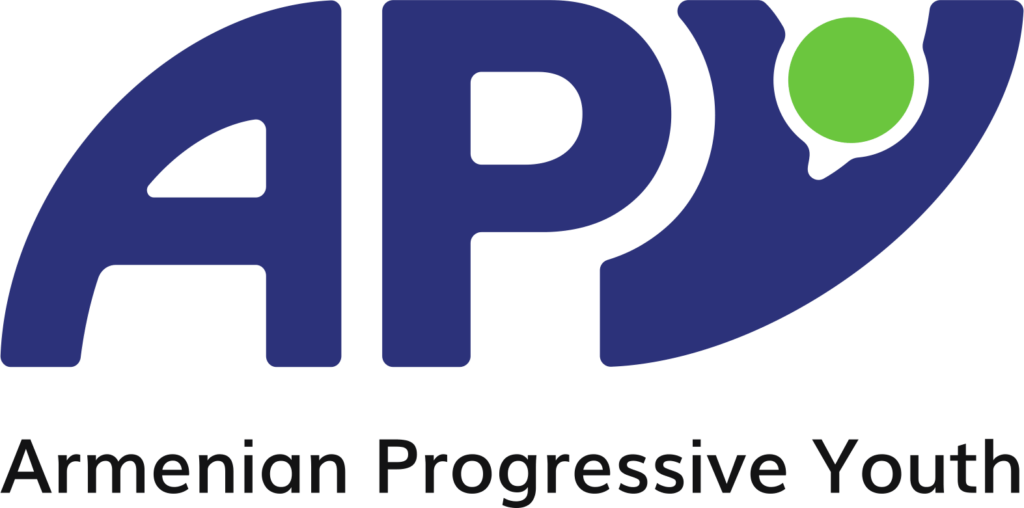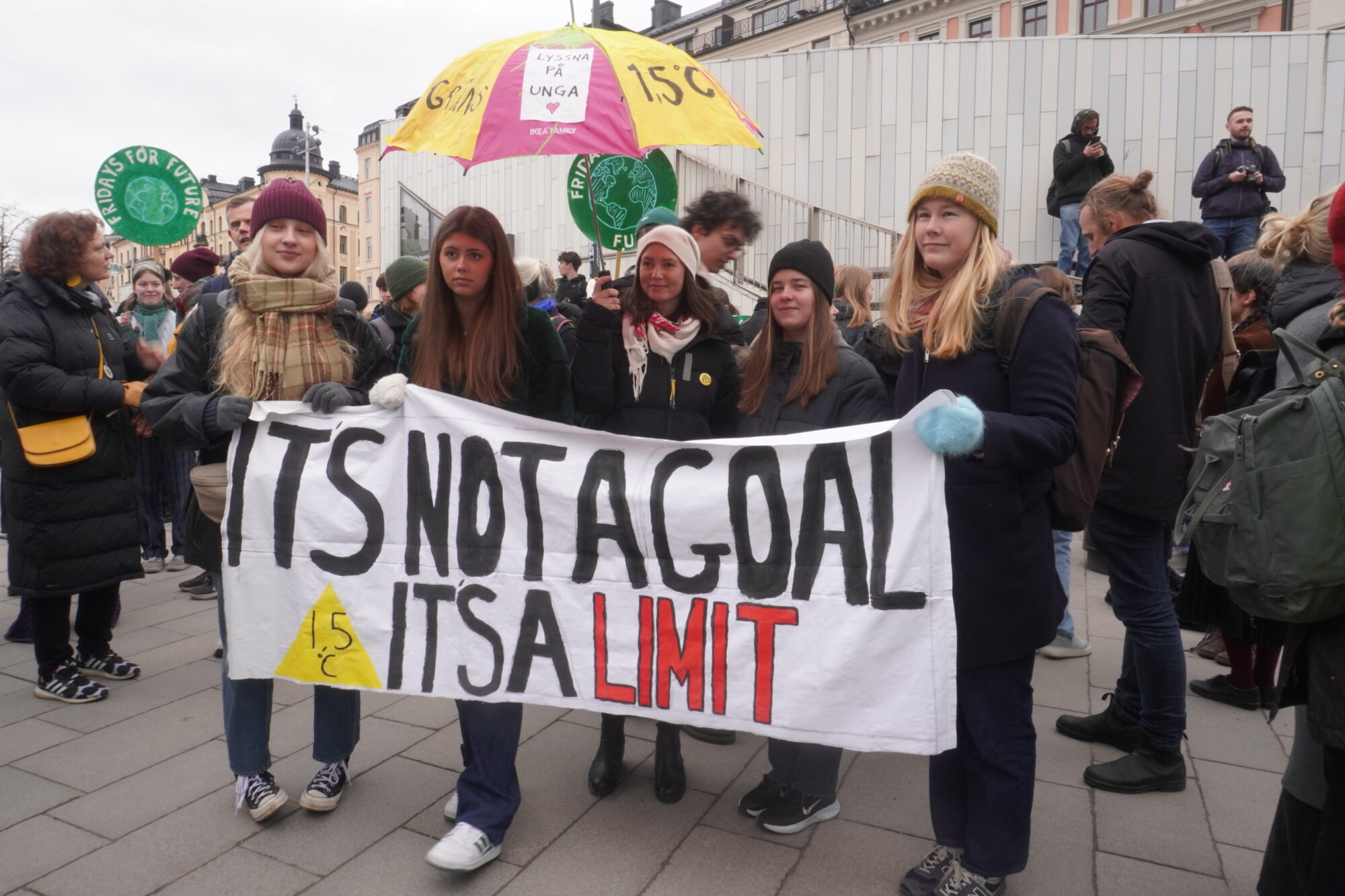Between 2021 and 2024, three organizations—Fryshuset, Greenpeace, and Armenian Progressive Youth—joined forces to lead Planet One.
Leveraging the collective strengths and extensive experience of these organizations in engaging youth, creating platforms, and advocating for climate and environmental justice, the aim was to empower the growing global youth movement for climate justice.
Makerspaces: Empowering Youth to Create and Learn
The core strategy of Planet One was to establish physical meeting spaces, known as makerspaces, for young people aged 15–25 in six countries: Armenia, Cameroon, Kenya, Sweden, South Africa, and Hungary. These makerspaces were designed as safe environments where young individuals could learn about climate and environmental issues, engage in creative expression through hands-on learning, and develop their own solution-driven projects—ranging from small-scale urban farming to global climate campaigns. Each makerspace was equipped with tools, materials, and a sense of determination, offering young people the resources and inspiration to drive meaningful change.
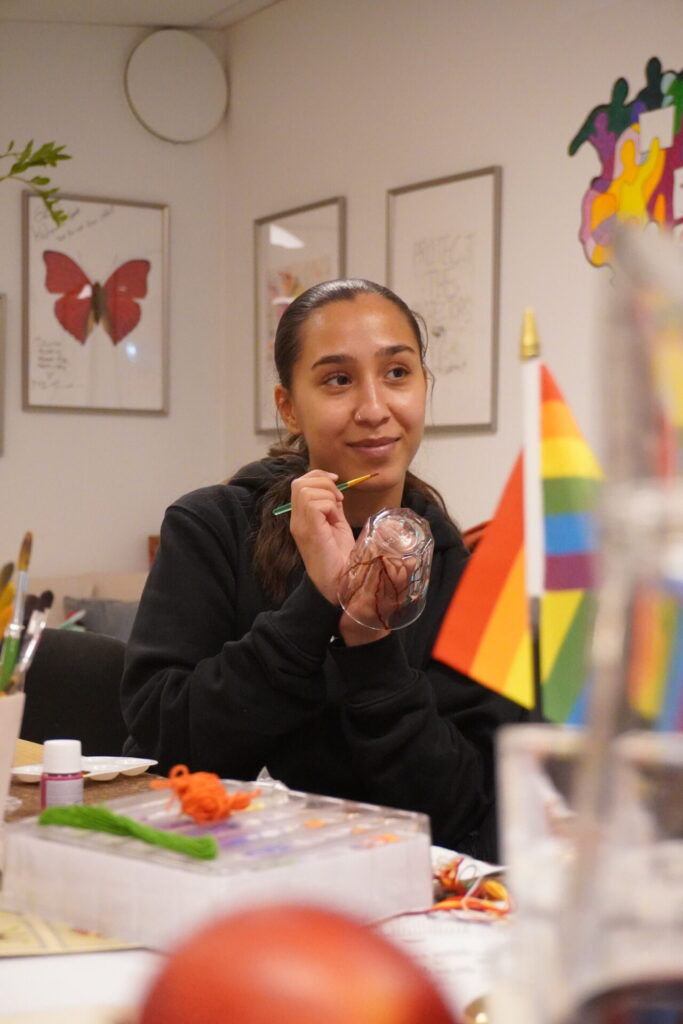
Photographer: Olivia Forsberg
Four Years, 45,000 Young Participants, and Lasting Impact
The ambitions for this project were nothing short of bold. At the outset, the goals felt almost insurmountable. Establishing physical hubs worldwide and engaging thousands of young people seemed easy enough on paper, but the reality was far more complex. Today, with every target surpassed, Planet One is a testament to what can be achieved when empowering young people to grow, connect, and create meaningful change on both local and global scales.
The heartfelt testimonials from participants speak for themselves:
“Thank you for giving young people a platform to showcase our strengths and influence policymakers in our communities.”
“My time at the space was unforgettable, and I valued every moment there. The knowledge and insights I gained about environmental issues were truly invaluable”
“The makerspace gave me the opportunity to spread my creative wings and raise awareness about nature.”

Photographer: Solomon Kinuthia
A key factor in the project’s success was the skilled and dedicated local teams. Each team included a coordinator and youth leaders who, with their local knowledge and networks, built trust and facilitated the youth’s energy into meaningful actions. Thanks to these teams and the participants, over 4,000 activities were organized. Beyond scheduled events, the spaces were open for drop-in use 1–4 days a week and were freely available for young people to book for climate-related meetings or workshops. Through the Planet One youth fund and support from the local teams, young participants initiated over 6,800 projects. These ranged from clothing swap days and podcast recordings to urban gardening projects, banner painting for demonstrations, workshops on sustainable energy, and much more.
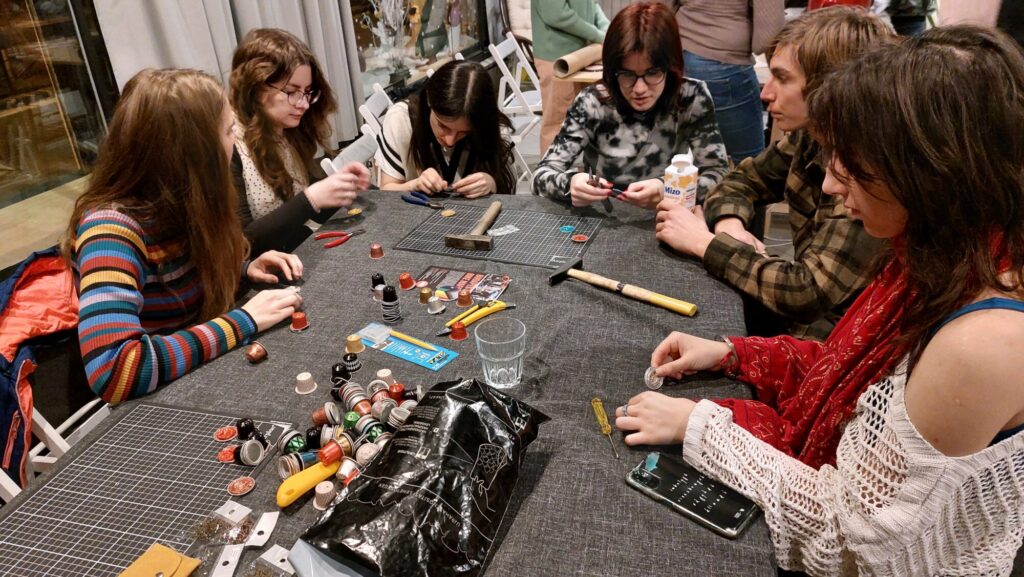
Photographer: Lili Szabó
In addition to the strong local teams, another group focused on the global aspects: offering support to the makerspaces when needed, fostering a sense of global unity, and creating opportunities for cross-border exchanges of knowledge and experiences. These interactions primarily took place online on a weekly basis, but also through in-person global activities. We have especially found memories of the two youth exchanges, where Planet One brought together 20-30 young people from each makerspace to share their experiences, knowledge, and insights.
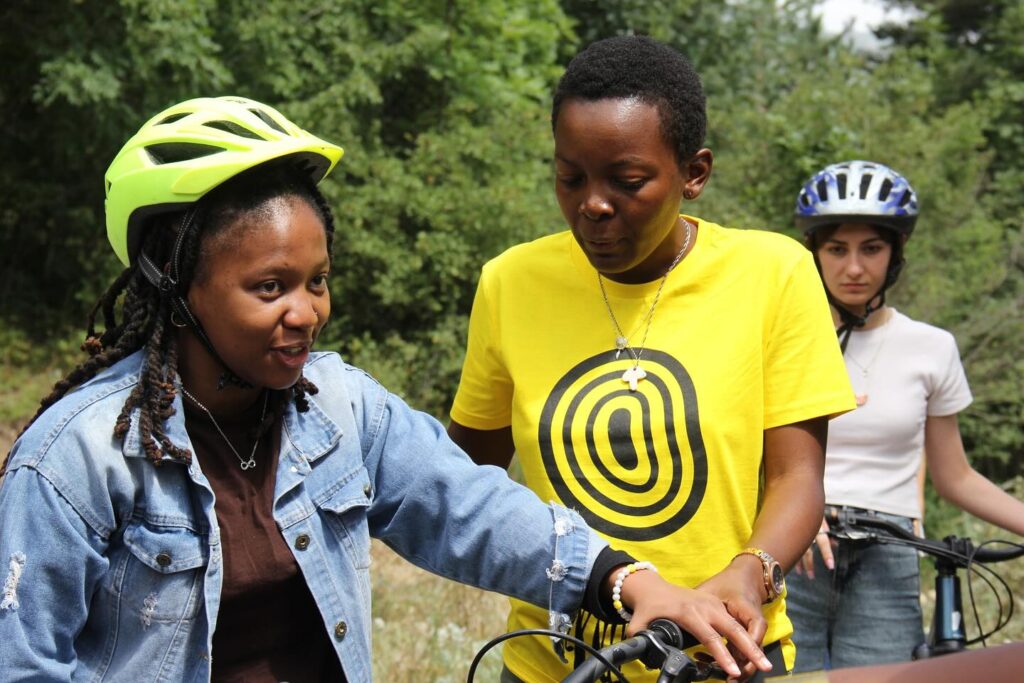
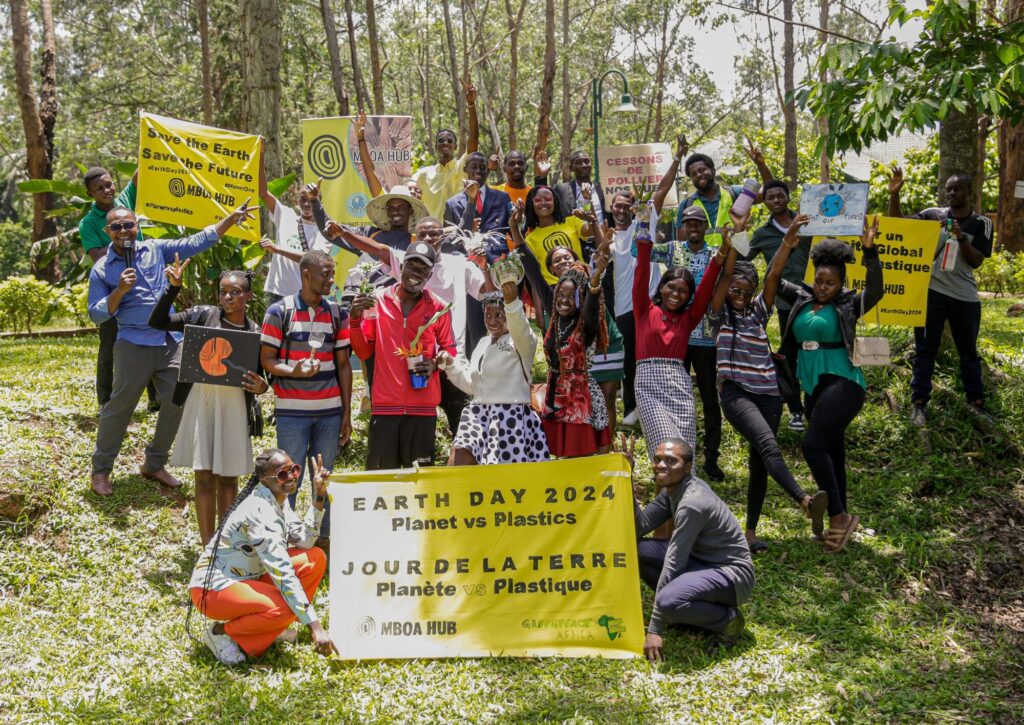
Photographer: Nene Fembe (Nene Febd Studios)
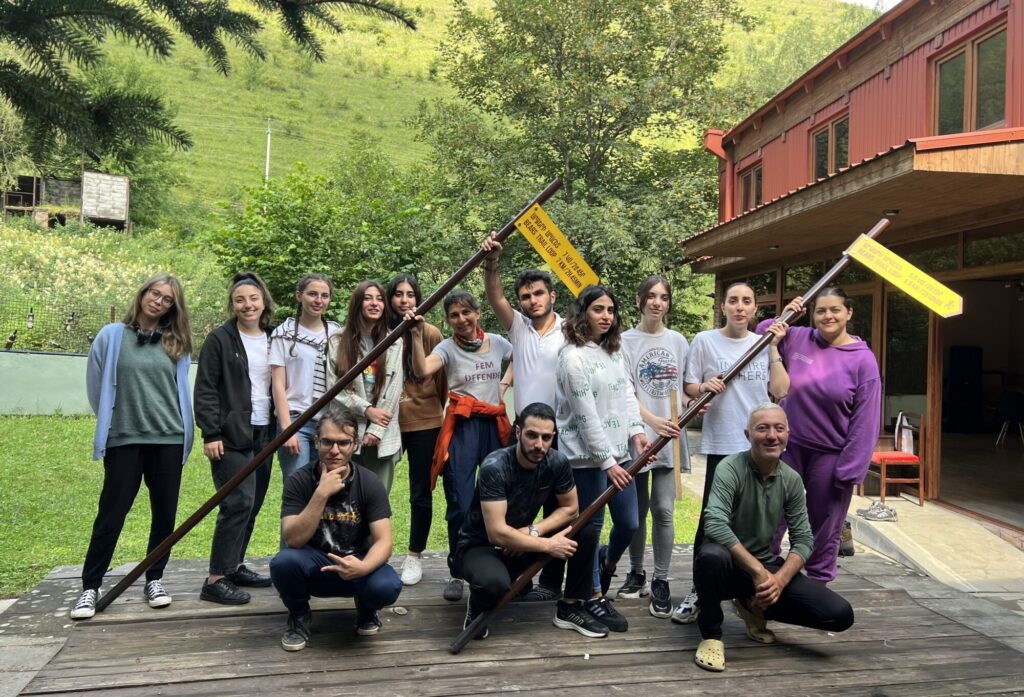
We know that the legacy of Planet One and all the makerspaces will live on. One way we’re sharing the lessons and inspiration from these years is by creating an online Toolkit and a downloadable Handbook. The Handbook is open to all, so get started and launch your own makerspace. Both the Toolkit and the Handbook were made to let the knowledge and experiences that were gained throughout the project to live on, to spread and share our knowledge, to act as an inspiration and guiding tool for similar projects, organizations and meeting hubs, and to support the continuation of the projects’ makerspaces that live on after 2024.
The Next Chapter in the Planet One story – Planet One Network
Planet One has now evolved into an informal global network of youth-driven hubs dedicated to climate action and environmental advocacy. Operating as a dynamic and inclusive learning community, Planet One bridges the gap for collaborations among members. By joining, you’ll gain access to shared resources, collaborative meetings, and opportunities to empower youth, diversify the climate movement, and inspire innovative solutions.
Would you like your hub to be part of Planet One?
Reach out to us at olga@bolygo.org to learn more!
Makerspaces:
Alternative Youth Center, Yerevan, Armenia
Bolygó, Budapest, Hungary
Mboa Hub, Yaoundé, Cameroon
Momentum, Stockholm, Sweden
Ubunifu Hub, Nairobi, Kenya
Ubuntu Hub, Johannesburg, South Africa
Want to Hear More Voices About Planet One?
Check out the short documentary about the project: Leading the Change – Youth for Climate Justice.


